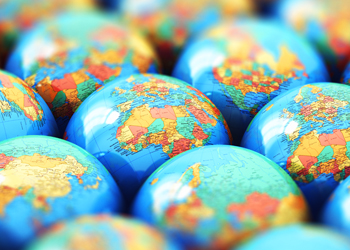Globalisation at the 3rd Vision Europe meeting

Who wins and who loses from globalisation? This was the key theme of the third Vision Europe summit that gathered four foundations, including the Gulbenkian Foundation, and four European think tanks in Italy alongside various academics, politicians and diplomats, one Economics Nobel laureate, one Sakharov Prize and Calouste Gulbenkian Award for Human Rights winner in addition to many other guest speakers on this theme.
The future is much more than a question in the words of Marion Jansen, from the ITC – the International Trade Centre in Geneva. The chief ITC economist recalled in Turin, on the second day of the meeting, that, given the extent of the uncertainties about the future, Europeans might question themselves as to “who is going to protect them”. And providing the protection necessary to deal with the fear that has surged in this era of globalisation in which terrorism, the lack of pensions and social supports and the loss of employment rule. Marion Jansen had no doubts that Europe needs inclusion and a strategy (communication and education), to ensure citizens again feel that they are part of something.
At the two day summit, this year organised by Compagnia di San Paolo and following on from the event hosted in Lisbon last year by the Gulbenkian Foundation, papers were presented on globalisation including among which was a study undertaken by the Bertelsmann Foundation of Germany. In analysing the increase in earnings per capita in over 40 countries, between 1990 and 2014, especially the effects of economic and political globalisation, the Bertelsmann report concluded that at the top is China with an average increase in earnings of around 400 per cent and followed by South Korea (250 per cent). Down in 25th place came Italy with a rise of only 100 per cent, while Greece, Poland and Portugal appear in still more lowly positions. Such numbers directly interrelate with economic displacement and the consequent loss of employment and the subsequently poor performance of European salaries.
The existence of a gap between the winners and losers of globalisation was also the theme for the Economics Nobel laureate, Michael Spence, who pointed to how winning and losing “always depend on the place you live in” but that there were always losers in whatever the place. Only through international cooperation and the creation of employment and innovative solutions shall people again be able to believe in the future and in leadership, maintained Michael Spence.
Africa and globalisation
While the Bertelsmann report identifies an increase in earnings per capita in pretty much every country worldwide, there is one frame that falls out of this picture, Sub Saharan Africa where 41 per cent of the population subsist on little over one and a half euros per day. A continent incapable of following the path to development as was rendered clear in the speech made by the special guest at this initiative, Denis Mukwege, the Calouste Gulbenkian International Award winner in 2015. The Congolese doctor became renowned for his notable work in defence of Congolese female rape victims as highlighted by the President of the Gulbenkian Foundation in making the award against the fine backdrop of the Museo del Risorgimento, in Turin. Mukwege then described how, in the Democratic Republic of the Congo, while sitting on the routes of world globalisation, this has still only worsened “the difference between the ostentatious wealth of the leaders and the general poverty of the Congolese”. Mukwege took advantage of the occasion to emphasise that without universal human rights, there could never be positive globalisation.
At the end of the second day, the final project declaration was presented for signing by the Vision Europe partners and correspondingly making recommendations at the national and European levels designed to influence public policies on globalisation related issues. The Vision Europe Summit is an event set up by the foundations: Calouste Gulbenkian; Bertelsmann, of Germany; Bruegel, of Belgium and Compagnia di San Paolo, of Italy. This also incorporates a partnership with the think tanks: CASE – Centre for Social and Economic Research, of Poland; Chatham House, of the United Kingdom; Jacques Delors Institute, of France; and The Finnish Innovation Fund Sitra, of Finland.
